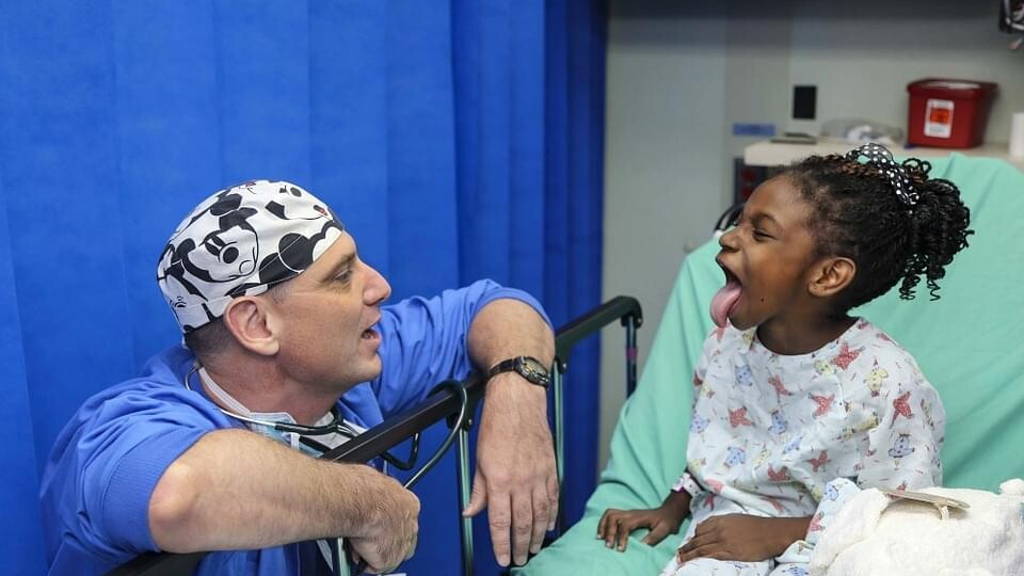What will happen, he writes, is that in the future, the healthcare industry will be led by businesses that put people first, effectively complementing people with technology, rather than replacing them. Technology will augment clinical care and aid human decision-making, giving individuals the space to harness the — uniquely human — character and social skills that are the building blocks of healthcare.
Safavi points out a recent study by consultancy firm Accenture, which identified five emerging forces that are converging to shape the “people first” healthcare landscape: intelligent automation, liquid workforce, the platform economy, predictable disruption and digital trust. Put together, these five pillars reinforce the role of people in healthcare: clinicians, administrators, researchers, payers and of course patients.
One solution for fostering digital trust is Blockchain technology, used for example to secure transactions with digital money such as Bitcoins. It is essentially a decentralized list of all transactions across a peer-to-peer network within a virtual ledger, that uses cryptography principles to tracks who has seen what, while also preserving a level of anonymity. Blockchain is already used in Estonia, a country that leads the world in digital government. Every citizen has a digital identity, which provides the foundation for securing Estonians’ health records.
Safavi points out a recent study by consultancy firm Accenture, which identified five emerging forces that are converging to shape the “people first” healthcare landscape: intelligent automation, liquid workforce, the platform economy, predictable disruption and digital trust. Put together, these five pillars reinforce the role of people in healthcare: clinicians, administrators, researchers, payers and of course patients.
Intelligent automation
Some 70 percent of healthcare executives are increasing investment in artificial intelligence (AI) solutions, 69 percent in machine learning. For clinicians, intelligent automation supplements the diagnostician’s ability to reach the right conclusion faster. At each stage of the healthcare value chain — from laboratory to post-hospital care — sensors generate data that can be analyzed to inform clinicians, caregivers and patients to improve outcomes. Though intelligent automation helps health professionals with diagnosing and giving advice by sifting through big amounts of data, it’s still important that people get the advice from a friendly or comforting face. Physicians, clinicians or family members simply cannot be replaced by machine learning in healthcare.Liquid workforce
Some 42 percent of healthcare workers will be contractors, freelancers and temps by 2019. Telehealth channels can help providers reach many patients, from wherever that provider is working. A survey by American Well shows that two out of three patients would accept video-based appointments.The platform economy
This economy is already transforming healthcare and other industries. 39 percent of healthcare executives believe platform-based business models will be critical to business success, shaking up traditional employer health benefit workflows. And industry analysts expect 10x growth for APIs by 2021.Predictable disruption
86 percent of healthcare executives feel pressure to reinvent their businesses before they are out-innovated by competitors. Increasingly, the legacy healthcare system — hospitals, health insurance plans and life science companies — is being challenged by startups and digitally based businesses that health consumers — particularly millennials — find more accessible, transparent and impactful.Digital trust
Healthcare solutions, medical research, need trust as a basis to work from. Accenture estimates that cyberattacks will cost hospitals $305 billion over the next five years and that one in 13 patients — about 25 million people — will have personal health information stolen. Bolstering consumer trust is crucial to people engaging in their healthcare and embracing personalized medicine. And, consumers want to participate: 65 percent of health citizens globally believe that the benefits of being able to access medical information electronically outweigh the risk of privacy invasion.One solution for fostering digital trust is Blockchain technology, used for example to secure transactions with digital money such as Bitcoins. It is essentially a decentralized list of all transactions across a peer-to-peer network within a virtual ledger, that uses cryptography principles to tracks who has seen what, while also preserving a level of anonymity. Blockchain is already used in Estonia, a country that leads the world in digital government. Every citizen has a digital identity, which provides the foundation for securing Estonians’ health records.






